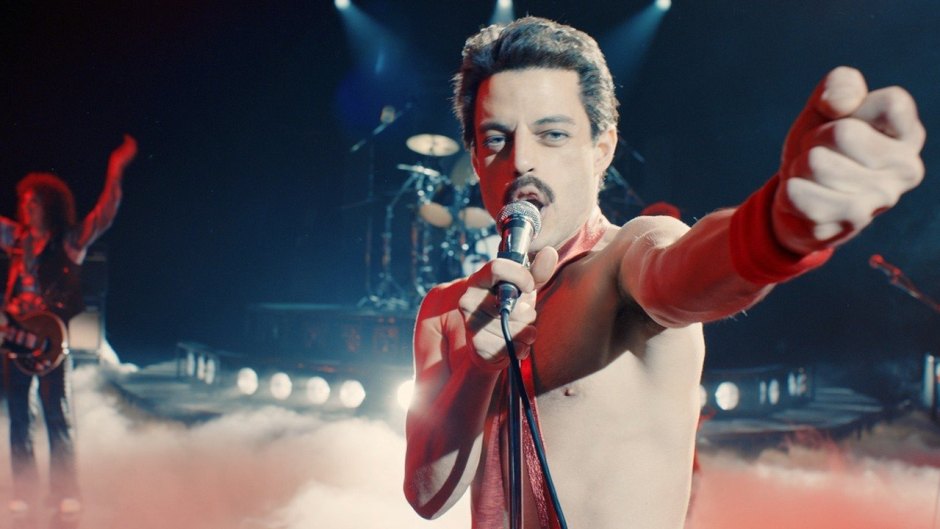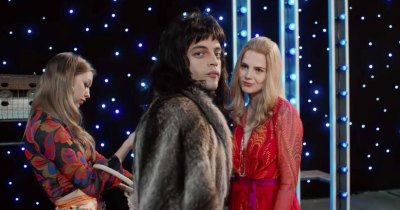
Bringing Freddie Mercury To Life In ‘Bohemian Rhapsody’ Was The Biopic’s Biggest Challenge
You don’t have Queen without Freddie Mercury, and that simple fact presented one of the biggest challenges for the filmmakers behind the new music biopic, Bohemian Rhapsody. Bottom line, Freddie was unique and remained that way from the time the British group was formed in 1970 until his death in 1991, achieving unbelievable highs in terms of music and concert tours in between. For whoever would be chosen to bring his story to life, there was a need to capture not only his personality, but the way that he was able to hold sway over massive crowds in terms of his dancing and overall movements.
“Freddie was a guy who didn’t stand for anything,” offers producer Graham King. “He was a fighter. It wasn’t easy being an immigrant in the UK in those days. He didn’t become a star immediately, he wasn’t an overnight success. He became one by fighting, by not accepting ‘no,’ by not being negative and by always fighting back from the knocks with something bigger and better. That’s what Queen managed to do so well in their music. Every time you thought you’d heard the best of Queen, a song would come along and blow your mind.”
The creatives searched long and hard before they found their man in a rather unlikely place: The USA TV series, Mr. Robot, and its star, Rami Malek, who would take home an Emmy for his work on the show. Notes Rami, “I knew that Queen was massive and Freddie Mercury was an icon and a hero to so many. But I don’t think I completely understood just how important he is to so many people across the world. Queen’s fan base is massive. I was always a fan, but it was only when I started researching the band that I realized they began in the 1970s, when they all had long hair and black fingernails, and wore outrageous outfits. I think most people identify with Freddie as this crop-haired, mustachioed, tank top wearing muscular man who had a ton of bravado and machismo. It was astonishing to get to know the many versions and the very sweet side of him.”

(Photo Credit: 20th Century Fox)
Graham points out that, in his opinion, no one commanded an audience — or was capable of playing to the back of the stadium — like Freddie did, feeling that his motivation came from thinking about outcasts. “He thought about people getting bullied in the world. He thought about the guy that can’t afford to be here. And he gave what he got from his roots. I don’t think he ever lost the roots of where Freddie Mercury came from and what it meant to him. And I think the songs he created as a part of Freddie’s persona said, ‘Yes, I might be a singer, but we can all sing along. We can all love each other. We can all try and find a place to get along in this world.’ And I think that meant so much to him.”
Agrees Rami, “One thing about Freddie Mercury that’s absolutely undeniable is his magnetism. When he was on stage, holding that half mic or sitting at the piano, he feels capable of anything. What was magical about him was the exchange with everyone in the audience where everyone was allowed to feel the same thing — he could reach you as if you were the only person in the room. It’s that exchange that makes him one of the most unique and remarkable and revolutionary artists of our time or any time. When you set out to play Freddie Mercury, you think, ‘How am I ever going to fill those shoes?'”
Come Nov. 2, the world is going to let him know whether or not he succeeded.








































